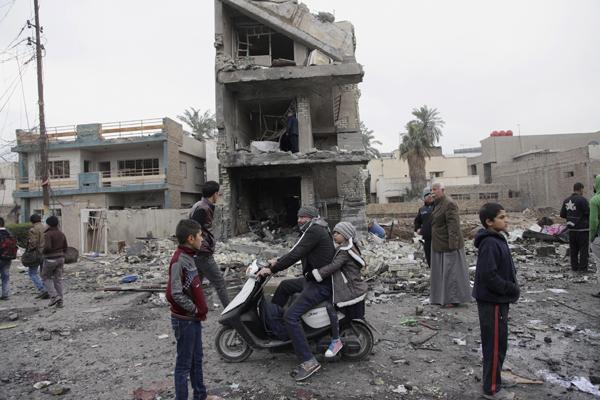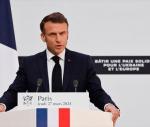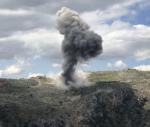You are here
Sunni MPs boycott Iraq parliament and gov’t in protest at violence
By Reuters - Jan 20,2016 - Last updated at Jan 20,2016
BAGHDAD — Iraq's parliament suspended its meeting on Tuesday amid protests by Sunni Muslim MPs over violence that targeted their community in eastern Iraq and left dozens killed in apparent retaliation for anti-Shiite bombings claimed by Daesh.
Sunni lawmakers urged Prime Minister Haider Al Abadi to disband and disarm the Shiite militias which they accuse of being behind the latest attacks in and around the town of Muqdadiya, 80 kilometres northeast of Baghdad.
Raad Al Dahlaki and Nahida Al Daini, two Sunni MPs from Diyala province where Muqdadiya is located, said 43 people had been killed over the past week and nine mosques fire bombed. Salah Muzahim, another MP, said the toll was over 40 dead.
The rise of the Daesh has exacerbated a long-running sectarian conflict in Iraq, mostly between the Shiite majority and minority Sunnis.
A surge in such violence would represent a further challenge to Prime Minister Haider Al Abadi, a moderate Shiite Islamist who is trying to reconcile the Sunnis and win them over to push Daesh out of the mainly Sunni-populated areas in the country's north and west which it seized in 2014.
"These killings are hindering Abadi's efforts to rebuild trust with the Sunnis which is essential to recover territory under ISIS [Daesh] control," said Mona Alami, a Beirut-based analyst with the Atlantic Council think tank.
Abadi toured Muqdadiya on Tuesday, walking through the town surrounded by guards and security officials. He denounced the use of force by non-state actors, without specifically mentioning the militias.
"We consider any weapon outside this framework as a weapon [benefiting] the terrorist Daesh gangs,” he said, according to a statement from his office.
Earlier on Tuesday Sunni politicians said they were boycotting two sessions of parliament, leading to its adjournment, in condemnation of the violence in Muqdadiya. "We demand the dissolution and disarmament of the [Shiite] militias," said the statement read by MP Ahmed Masari.
Iraq's interior ministry has not published a toll for Sunni casualties in Muqdadiya and neighbouring villages. The ministry's spokesman was not available to provide details on the latest violence.
Badr Organisation, the Iranian-backed Shiite militia which is dominant in Diyala, rejected the casualty figures quoted by the Sunni MPs.
"Yes, there are people killed but this number is exaggerated," Mohammed Naji, an aide to Badr leader Hadi Al Amiri, told Reuters.
He described the attacks on Sunni mosques as violations by people who want to stir up sectarian tension in Diyala, which lies between Baghdad and the Iranian border and has a mixed population of Shiites and Sunnis.
At the height of Iraq's civil war nearly a decade ago, such violence often unleashed revenge killings and counter attacks across the country.
Shiite militiamen deployed in Muqdadiya last week after two blasts killed 23 people near a coffee shop where they often meet. Daesh claimed responsibility for the attacks which they said had targeted Shiites.
The level of violence has receded but tension remains with the town still under the control of Shiite militiamen, Dahlaki and Daini said.
Badr Organisation has established itself as the ascendant militia in the region since rolling back Daesh’s advance. Amiri last week expressed regret over the violence in Diyala and offered to rebuild the destroyed Sunni mosques there.
Iraqi officials declared victory over the insurgents in Diyala nearly a year ago, but the militants have remained active. Many Sunnis fled their homes in the province as Badr advanced and accused the militias of abuses, which they have denied or blamed on rogue members.
Shiite militias were left out of last month's battle against Daesh in the western city of Ramadi over fears they would aggravate tensions in the mostly Sunni area.
Related Articles
BAGHDAD — At least seven Sunni mosques and dozens of shops in eastern Iraq were firebombed on Tuesday, security sources and local officials
BAGHDAD — A spate of bombings across Baghdad killed at least 24 people on Saturday, two days after the deadliest attack in the Iraqi capital
Iraq said on Monday it had put its Tikrit offensive on hold and senior officials called for more air strikes to dislodge Daesh militants, while a Kurdish officer said his forces were exposed to two further chlorine gas attacks by the insurgents.

















